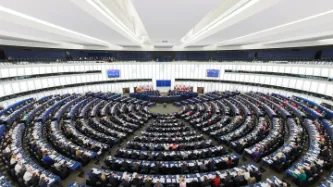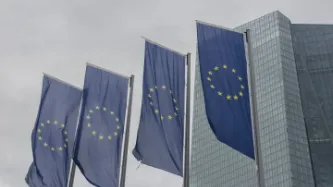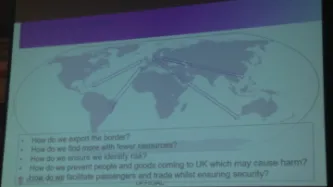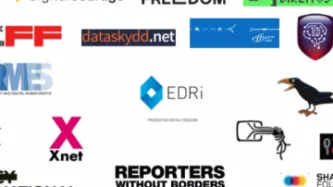Search
Content type: Case Study
On 3 December 2015, four masked men in plainclothes arrested Isnina Musa Sheikh in broad daylight (at around 1 p.m.) as she served customers at her food kiosk in Mandera town, in the North East of Kenya, Human Rights Watch reported. The men didn’t identify themselves but they were carrying pistols and M16 assault rifles, commonly used by Kenyan defence forces and the cars that took her away had their insignia on the doors. Isnina’s body was discovered three days later in a shallow grave about…
Content type: Advocacy
This stakeholder report is a submission by Privacy International (PI), the National Coalition of Human Rights Defenders Kenya (NCHRD-K), The Kenya Legal & Ethical Issues Network on HIV and AIDS (KELIN), and Paradigm Initiative.
PI, NCHRD-K, KELIN, and Paradigm Initiative wish to bring their concerns about the protection and promotion of the right to privacy, and other rights and freedoms that privacy supports, for consideration in Kenya’s upcoming review at the 35th session of the Working…
Content type: Advocacy
We welcome the effort by the Government of Kenya to give life to and specify the right to privacy, already enshrined in Article 31(c) and (d) of the Constitution of Kenya by proposing a draft Data Protection Act. We particularly appreciate the direct reference to this Constitutional right in the purpose of the Act and the way it is referred to on several occasions in this proposed Bill.
Development of an effective and comprehensive Data Protection law in Kenya is a priority. In…
Content type: News & Analysis
Photo: The European Union
On 2 September 2019, Privacy International, together with 60 other organisations, signed an open letter to the European Parliament to express our deep concern about upcoming EU policy proposals which undermine the EU’s founding values of human rights, peace and disarmament.
Since 2017, the EU has diverted funds towards security research and security capacity-building in countries around the world. The proposal for the EU's next budget (2021-2027) will…
Content type: Examples
In September 2018, EU’s antitrust watchdog, the European Commission, launched a preliminary investigation into how the platform uses data about merchants. Margrethe Vestager, EU Competition Commissioner said that the informal probe concerns the e-commerce group’s dual role as a competitor while simultaneously acting as a host to third-party merchants, who sell goods on Amazon’s websites. “The question here is about the data,” Ms. Vestager said.
The Amazon marketplace investigation follows up…
Content type: Press release
The Irish Data Protection Commission has today launched an inquiry into the data practices of ad-tech company Quantcast, a major player in the online tracking industry. PI's 2018 investigation and subsequent submission to the Irish DPC showed how the company is systematically collecting and exploiting people's data in ways people are unaware of. PI also investigated and complained about Acxiom, Criteo, Experian, Equifax, Oracle, and Tapad.
PI welcomes this announcement and its focus on…
Content type: News & Analysis
This piece was first published in GDPR today in March 2019.
Elections, referendums and political campaigns around the world are becoming ever more sophisticated data operations. This raises questions about the political use and abuse of personal data. With the European Union elections fast approaching and numerous national and local elections taking place across EU Member States, it is essential that the legal frameworks intended to protect our personal data do just that.
Member State…
Content type: News & Analysis
Photo by DAVID ILIFF. License: CC-BY-SA 3.0
Between 23 and 26 May 2019 Europeans will be voting to elect members of the European Parliament.
Since the last elections in 2014, much has changed within and without the European Union: the rise of nationalism and Euroscepticism, the protracted armed conflict in Ukraine and the occupation of Crimea by Russia, the new political orientation of the United States, just to name a few.
Among the new challenges facing these elections is…
Content type: Long Read
This image was found here.
Spain is holding a national general election on April 28 (its third in four years). Four weeks later Spaniards will again go to the polls to vote in the European Parliament elections. At Privacy International we are working to investigate and challenge the exploitation of people’s data in the electoral cycle including in political campaigns. This includes looking at the legal frameworks governing the use of data by political parties and their…
Content type: News & Analysis
Mr. Zuckerberg has discovered the usefulness of regulation to protect our personal data. After years of lobbying against the adoption of the EU General Data Protection Regulation (GDPR) and of lamenting the ills of its implementation, Facebook seems ready to embrace European data protection law and even spread it across the world. Similar sentiments were recently expressed by Twitter.
This is a welcome change. Maybe the fines recently imposed by regulators and the increased scrutiny of…
Content type: Examples
In January 2019, Facebook announced it would extend some of the rules and transparency tools it developed for political advertising for upcoming spring elections in Nigeria, Ukraine, India, and the EU. In Nigeria, the site will bar electoral ads from advertisers outside the country where the election is being held, build a searchable library of electoral ads and retaining them for seven years, check the identity of individuals buying political ads against government-issued documents, and…
Content type: Examples
In the run-up to the May 2019 European Parliament elections, Google announced it would launch a new set of transparency tools to combat voter manipulation. Before being allowed to buy advertising on Google platforms, campaigns will be required to verify their identity, and approved ads will be required to display the identity of their purchaser. Google will build a real-time searchable database of all political ads and show their purchasers, costs, and demographics. Facebook announced similar…
Content type: Long Read
The UK border authority is using money ring-fenced for aid to train, finance, and provide equipment to foreign border control agencies in a bid to “export the border” to countries around the world.
Under the UK Border Force’s “Project Hunter”, the agency works with foreign security authorities to bolster their “border intelligence and targeting” capabilities with UK know-how and equipment.
As well as the provision of equipment and training, the Border Force is also advising countries on…
Content type: News & Analysis
Today, the Kenyan Government is starting their biometric registration exercise known as NIIMS, leading to the issuing of Huduma Namba ID numbers. Along with our colleagues and partners in the human rights community in Kenya, we are very worried about the ramifications of this system for people in Kenya, and particularly for marginalised communities.
Thanks to the hard work and timely action of civil society in Kenya, the judiciary has intervened at the last minute. A court ruling on…
Content type: News & Analysis
At the beginning of November 2018, the first GDPR-related privacy and freedom of expression case arose in Romania in connection to the publication by the RISE Project of several articles about a corruption investigation. The articles reported a close relationship between a road construction company that is currently under investigation for fraud, European funds, and a high-profile politician.
Shortly after the first article was published, the Romanian data protection authority (“ANSPDCP”) sent…
Content type: Advocacy
UPDATE 13 February: Facebook announced that it would open up its Ad Archive API next month. Read Mozilla's statement about the response here.
On 11 February 2019, Privacy International joined Mozilla and 36 organisations in an open letter to Facebook call on Facebook to make good on its commitments to provide more transparency around political advertising ahead of the 2019 EU Parliamentary Elections.
Specifically, our open letter urges Facebook to:
Roll out a functional, open Ad…
Content type: Long Read
The Privacy International Network is celebrating Data Privacy Week, where we’ll be talking about how trends in surveillance and data exploitation are increasingly affecting our right to privacy. Join the conversation on Twitter using #dataprivacyweek.
It is often communities who are already the most marginalised who are at risk because of the privacy invasions of data-intensive systems. Across the globe, we see the dangers of identity systems; the harms of online violence against women and the…
Content type: State of Privacy
Table of contents
Introduction
Right to Privacy
Communication Surveillance
Data Protection
Identification Schemes
Policies and Sectoral Initiatives
Introduction
Acknowledgement
The State of Privacy in Kenya is the result of an ongoing collaboration by Privacy International and the National Coalition of Human Rights Defenders - Kenya.
Key Privacy Facts
1. Constitutional privacy protections: Article 31 of the Kenyan Constitution specifically protects the right to privacy.
2. Data…
















